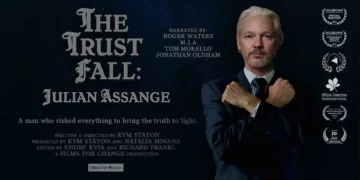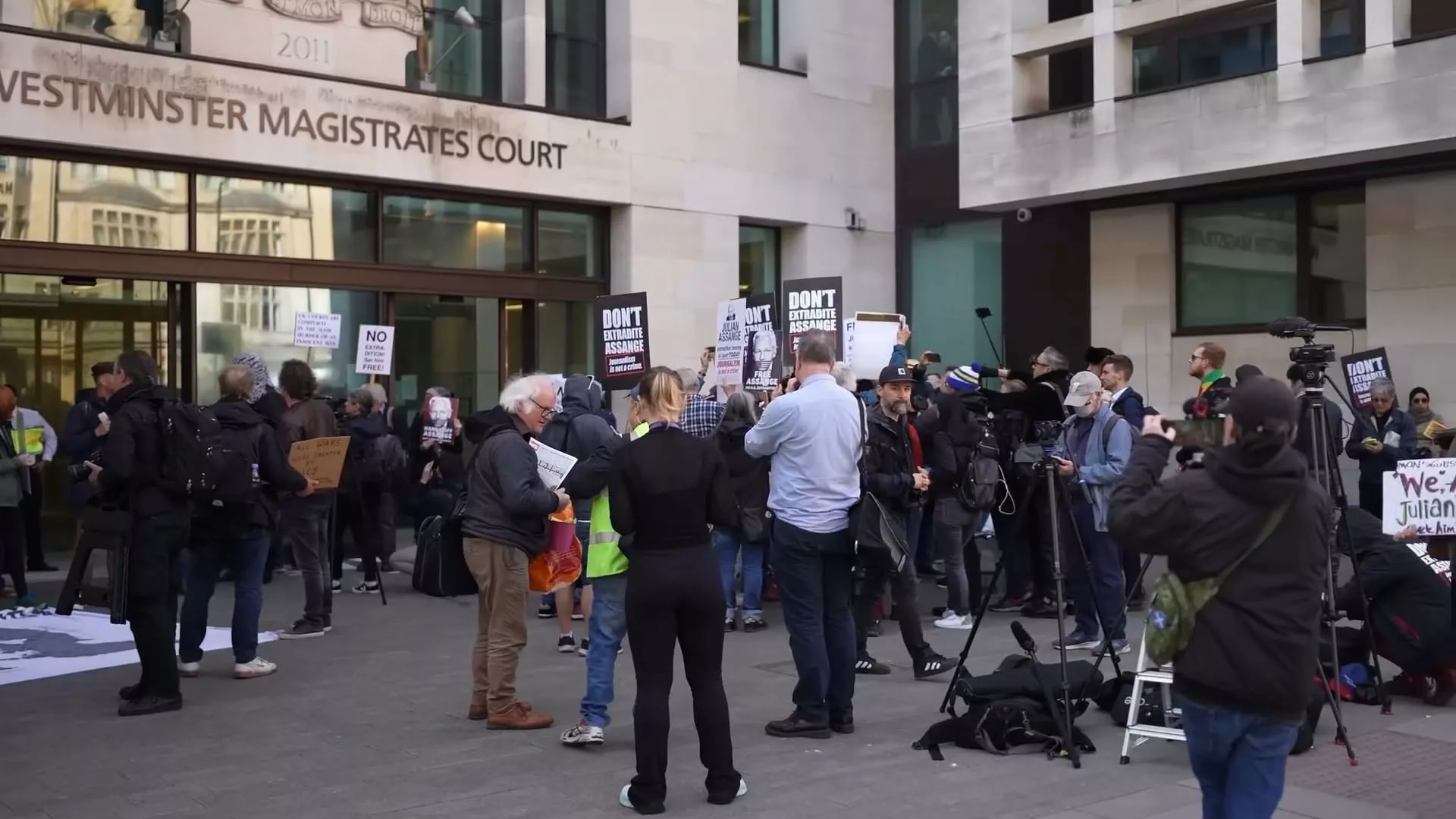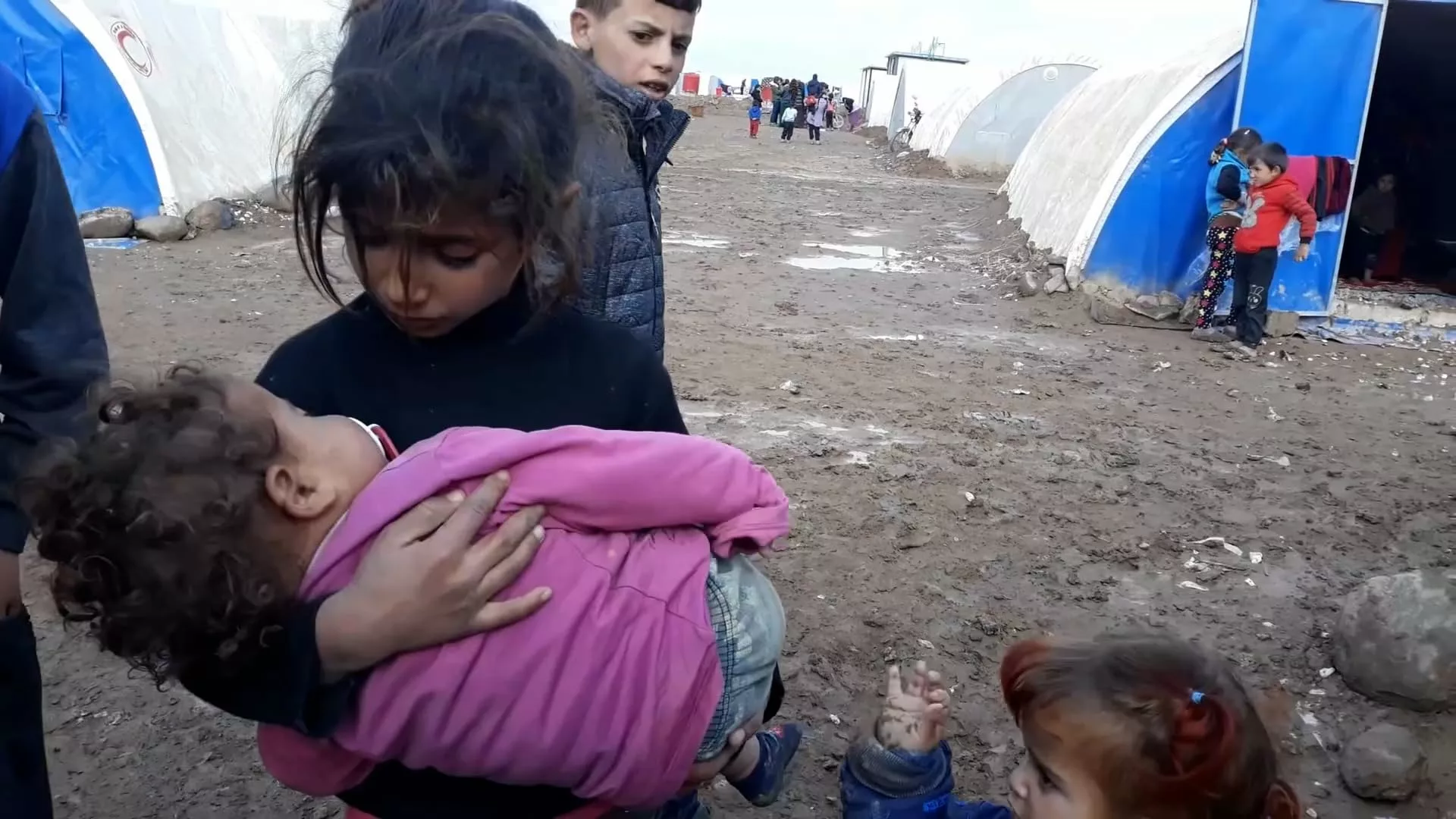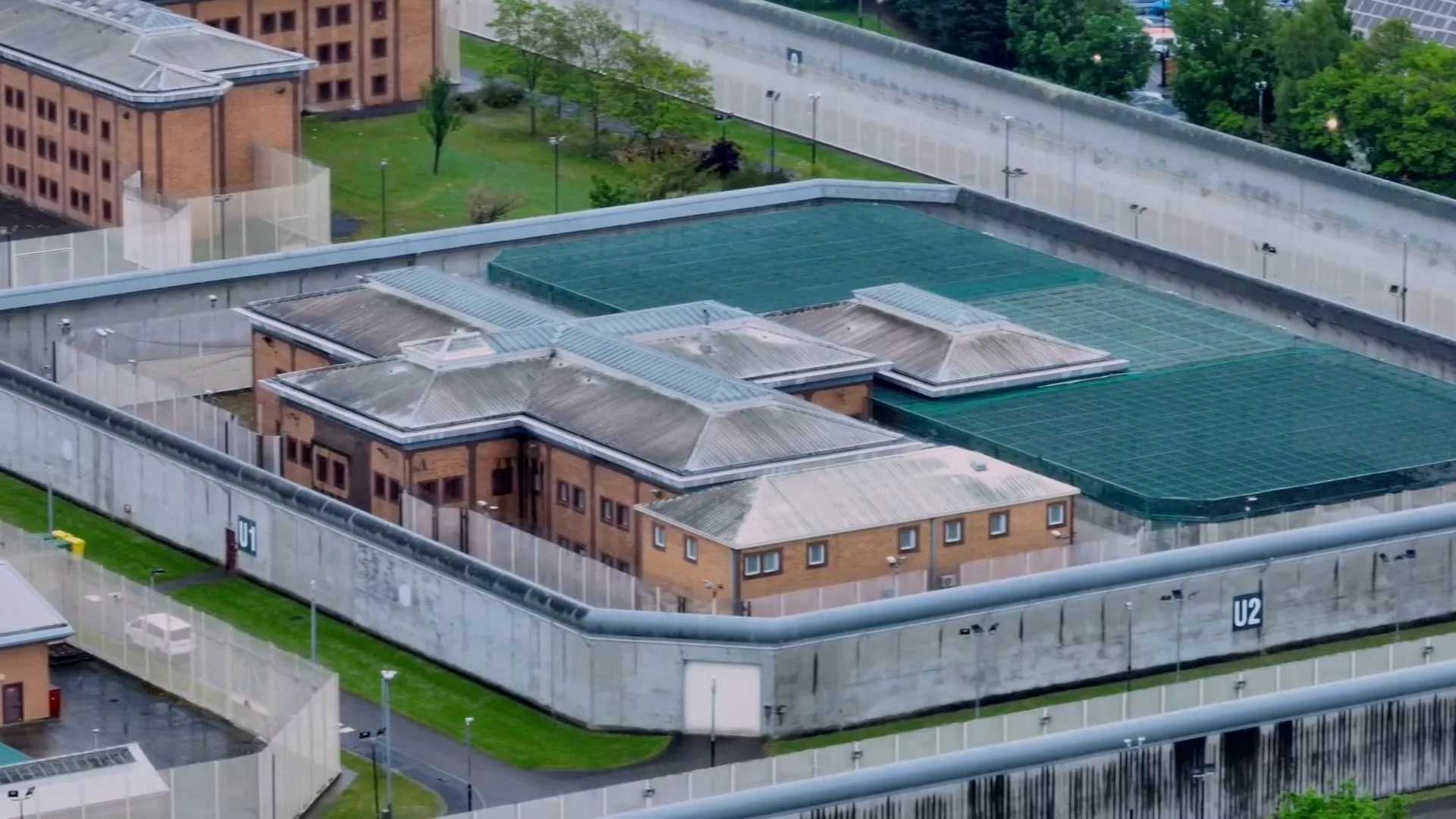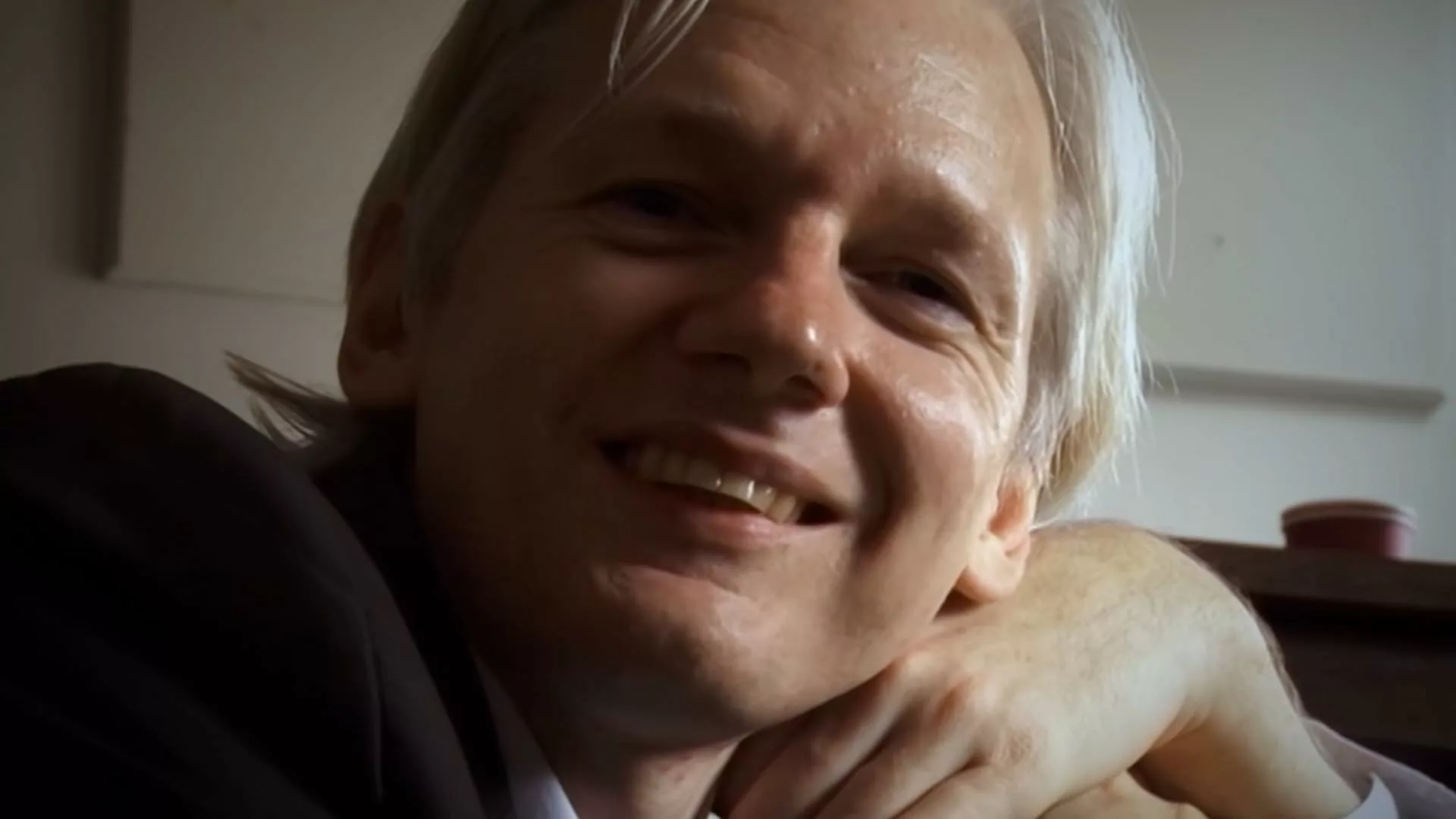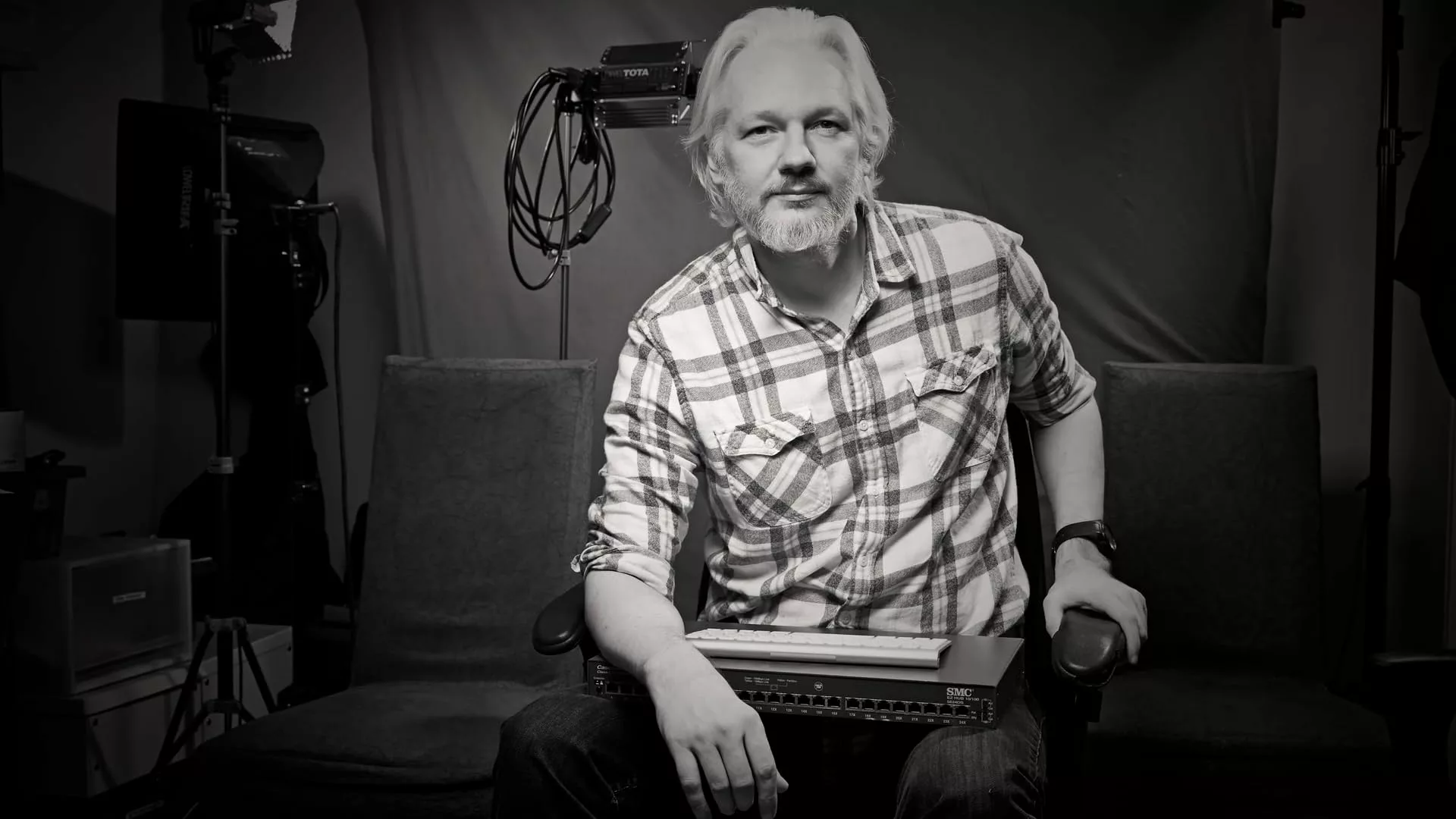Few modern figures have challenged norms around secrecy and accountability like Julian Assange. As the founder of WikiLeaks, he gave voice to whistleblowers by publishing millions of restricted documents exposing inconvenient truths.
This revelation of information unseen by most understandably upset many in power. Yet for others, it shone light in dark places and upheld principles of transparency in a digital age. Now with the documentary The Trust Fall, filmmaker Kym Staton hopes to shed light on both Assange’s pivotal role and his current plight through imprisonment.
The Trust Fall explores Julian Assange’s journey from his early life in Australia to rising to global prominence via WikiLeaks’ trailblazing model of secured document leaking. Viewers learn how footage like the infamous “Collateral Murder” video inflamed debate while illuminating civilian casualties of war rarely seen.
From there, legal troubles ensued as Assange’s extensive publishing triggered reaction. The film aims to contextualize these events and arguments around whether he acted as a journalist or not, all leading to Assange’s detention today as his extradition case in the UK continues. By taking audiences through key events and hearing from advocates, The Trust Fall makes the case that Assange’s treatment threatens the very freedom of the press his work upheld.
WikiLeaks and the pursuit of truth
The documentary takes us from Julian Assange’s childhood in Australia to the founding of WikiLeaks. Growing up, he developed a passion for technology and an intense curiosity about how it could shine light in dark places. This drive led him to create a bold new model for speaking truth to power through whistleblowing.
WikiLeaks got its biggest breakthrough with the “Collateral Murder” video. Captured by US forces, it showed the horrific killing of Iraqi civilians and journalists from a helicopter. Editors from major news outlets feared publishing such disturbing realty, but Assange helped ensure viewers worldwide could see the raw footage and make up their own minds. It left many questioning official stories of war and demanding more transparency from their leaders.
Assange’s role in revealing uncomfortable facts stirred reaction. Charges in Sweden arose from sexual misconduct allegations, though some saw these as a convenient excuse for extradition. Fearing he’d never get a fair trial, Assange sought refuge in Ecuador’s London embassy for years. There, he championed free speech even under intense surveillance and restrictions on movement.
After Ecuador revoked his asylum and British police dragged him from the embassy, Assange’s legal battle against extradition to America resumed. If sent there and convicted, he faces life in prison for publishing classified data through WikiLeaks.
The film argues this sets a troubling precedent for journalists everywhere. Though able to share his story, others question if this documentary presents all sides of complex matters in bringing Assange’s consequential journey to the screen.
WikiLeaks, Whistleblowing and the Pursuit of Truth
Kym Staton’s documentary makes a passionate case for Wikileaks founder Julian Assange. At its core is defense of Assange as a publisher protected by principles of a free press. His work at WikiLeaks exposed uncomfortable truths that challenged powerful establishment narratives.
The film emphasizes Assange’s greatest scoop – the “Collateral Murder” footage showing a US helicopter attack in Iraq. By releasing this uncensored video, WikiLeaks shone a light on civilian casualties rarely visible to the public. Staton argues such transparency is vital in holding authority to account. But it also stirred reaction far beyond what many activists have faced.
Much criticism is levied at America for pursuing Assange so forcefully. If extradited and convicted, he faces serious prison time for actions many see as fair journalism. By making an example of Assange, the documentary contends, the US aims to discourage future large leaks damaging to its interests. His prolonged isolation in London’s high-security Belmarsh prison is painted as unjust over-punishment.
Debates surround Sweden’s investigation into rape allegations. While it remains complex with arguments on both sides, the filming insists claims were ultimately exploited to help facilitate extradition to the USA. Assange’s fear of ending up in American custody where he believes fair treatment unlikely drove him to seek asylum in London’s Ecuadorian embassy for years.
Not all points find equal coverage. The movie references but does little to analyses WikiLeaks’ role in 2016 election leaks unfavorable to Hillary Clinton. Overall, it functions unambiguously as an advocacy piece, passionately put but understandably one-sided on an issue with nuances on all sides.
WikiLeaks and the Pursuit of Truth
Kym Staton’s documentary The Trust Fall brings us compelling testimony from those closest to WikiLeaks founder Julian Assange. We hear from his family as they express fears over Julian’s deteriorating health and uncertain future. Mother Christine and father John have long campaigned for his freedom, believing he risks unfair treatment should he be extradited.
Stella Moris, Julian’s partner and mother of his two children, recalls their unconventional courtship from her first contact with him inside the embassy. Now with young families of their own, she and Assange’s parents remain steadfast in the push for justice. Through intimate portraits, the film highlights personal stakes in this geopolitical saga that show its deep human toll.
Renowned investigative journalists also lend their voices. The late John Pilger offers sharp analysis of a “slow form of killing” aimed at punishing dissent. Daniel Ellsberg, legendary for the Pentagon Papers leak, draws parallels with his persecution as precedent for Assange. Both see dangers in setting the terms of his prosecution that could undermine transparency wherever true.
Perhaps most damning comes from Nils Melzer, the former UN Special Rapporteur on Torture. After direct findings that Assange exhibits symptoms consistent with psychological torture, Melzer indicts Australia, the UK, Sweden and US alike for indifferent complicity. Such credible first-hand witness lends weight that Assange’s treatment defies principles of a free society.
Taken together, these testimonies offer moving personal insight on complex matters that transcend legalism. They show real lives and livelihoods at stake, as well as ideals of accountability many fear are slipping from our shared grasp. Staton lets those closest drive home why some see WikiLeaks’ work and Assange’s ordeal as a litmus test for justice itself.
Exposing the Truth
One sequence in The Trust Fall brings the case for transparency into sharp focus. It centers on the now-infamous “Collateral Murder” video leaked by WikiLeaks in 2010. Showing a US helicopter attack in Iraq, it depicts the deadly shooting of over a dozen people — including two Reuters journalists — and injures of others in the aftermath.
Staton spares no detail in letting the raw footage speak. We see the attack unfold from above as the helicopter opens fire, then closes in to survey victims left littering the street. Listening in on the pilots’ nonchalant dialogue only adds to the discomfort. But it proves crucial in countering initial Pentagon dismissal of any wrongdoing.
Without such documentation, these civilian deaths may have been revised from historical fact into mere speculation. Instead, their memory lives on to inform and impact viewers in a way no summary ever could. It demonstrates why someone risked everything to disseminate what those in power wished to keep private.
Though not easy viewing, including this evidence proves central to evaluating both the events that led Assange into confinement and the principles of accountability his case raises. In sober, unflinching terms, it drives home why transparency matters and how its absence can obscure human costs of decisions made far from consequence. Some truths simply require facing, whatever tensions they might provoke.
Truth in the Light
The Trust Fall presents a compelling case for its subject, with some elements hitting their mark more than others. Where it shone brightest was in letting difficult source material speak for itself, from the harrowing “collateral murder” footage to scenes of protests and personal interviews. Presenting real-life impacts of secrecy and confinement without commentary tapped into the visceral and left lasting impressions.
Facts and arguments conveyed through passionate on-screen advocates also drove arguments home effectively. Hearing dire warnings about the treatment of whistleblowers from those who’ve experienced reprisals first-hand gave timely urgency. But occasionally relying too heavily on certain voices risked potential credibility issues for some.
Striking the right balance in complex debates with ethical and legal gray areas is challenging, and only showing one side left some room for counter perspective. While the film convincingly showed transparency’s importance, tougher questions about methods or specific leaks went unexamined.
Stylistically, mixed results emerged. Well-crafted sequences immersed viewers, while other flourishes like elaborate animated passages felt out of step. Simpler moments let gravitas shine through, as clarity strengthened what emotional pleas could not alone.
Overall, The Trust Fall shone a necessary light on an under-reported saga and its stakes for democracy. But acknowledging multiple truths may have strengthened what was otherwise a notable attempt to start a difficult discussion. In eliciting self-reflection as much as statements, it took an thoughtful step toward truer transparency.
Truth Deferred Denied
This film shines a light on issues that couldn’t be timelier or more consequential. By finally revealing long-hidden truths behind civilian killings in Iraq, WikiLeaks aimed to curb abuses many would rather sweep under the rug. Their disclosures call into question how wars are sold and escalated, leaving bitter legacies ordinary people pay the heaviest price for.
Yet for over a decade, the man responsible has borne unrelenting punishment while those responsible for initial wrongdoings enjoy impunity. It’s a sad commentary that speaking truth remains a riskier choice today than ignoring or distorting reality. As Assange’s multi-layered case continues dragging through legal limbo, one has to wonder how much the outcome might discourage other potential whistleblowers watching nervously from the sidelines.
Does any society proclaiming to uphold justice and press freedoms willingly accept this status quo? The Trust Fall leaves these questions tendered forthrightly for consideration, without simplistic answers. But on its most essential level – that no one should face indefinite retaliation for illuminating inconvenient realities – it makes a case too compelling to dismissively sidestep. If we wish to deter future wrongs from being buried through threats rather than accountability, resolutions here cannot wait indefinitely. The rights of all hang too precariously in the balance while truth remains denied. It’s time for a judgment that lets sunlight disinfect rather than permissions enabling it to fester in shadow.
The Review
The Trust Fall: Julian Assange
The Trust Fall tells an uncomfortable yet critically important story, bringing needed context and personal dimensions to complex issues that demand open debate. While not without flaws, the film energizes viewers with its emotive footage and interviews, keeping Assange's plight at the forefront of privacy and justice discussions. Overall, the documentary leaves a profound impression through its Heartfelt commitment to transparency, and stands as a timely reminder of watchdogs' role in holding power to account.
PROS
- Powerful archive footage and interviews that bring Assange's story to life
- Timely examination of important issues around whistleblowing and press freedoms
- Succeeds in humanizing its subject and those affected by leaked material
CONS
- Only presents one side of the complex legal and ethical arguments
- Narration and some animated sequences detract from the emotional core
- Lacks meaningful response from those criticizing Assange's actions
